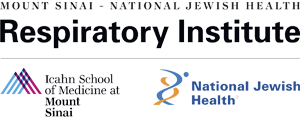About Asthma
Asthma is a common condition that affects individuals of all ages, races, and backgrounds. Asthma causes swelling and changes to the airways that we use to breathe. Common asthma symptoms include shortness of breath, wheezing (a whistling sound in the chest), chest tightness, or coughing.
Asthma is more likely to be diagnosed before age 20, although you can develop it at almost any age. It is more common in young people because this is when the immune system is developing and airways are growing. Anyone experiencing repeated episodes of cough, wheezing, chest tightness, or breathlessness should be evaluated for asthma.
Causes, Symptoms, and Triggers
There are a variety of causes, symptoms, and triggers of asthma.
Causes of Asthma
The exact cause of asthma is unknown. We do know that both genetic and environmental factors contribute to the development of asthma.
Asthma tends to run in families. Exposure to allergens (such as dust mites, mold spores, and cockroaches), air pollution, viral infections, and tobacco smoke are also linked to development of asthma.
Frequent antibiotic use, obesity, and growing up in an urban environment can also play a role in development of asthma.
Symptoms of Asthma
The most common asthma symptoms include wheezing, coughing with or without phlegm, shortness of breath, and chest tightness. Symptoms may occur occasionally and be mild, or they may occur often and be severe.
Other health issues can complicate asthma, including allergic rhinitis, sinusitis, sleep apnea, gastroesophageal reflux, diabetes, and high blood pressure.
Video options from National Jewish Health:
Triggers of Asthma Symptoms
The most common triggers of asthma include:
- Weather extremes (hot, cold, humid or quick change in weather conditions)
- Exercise (particularly in cold, dry air)
- Strong fumes (e.g., car exhaust, tobacco smoke, perfumes, paints, cleaning sprays)
- Allergens (e.g., furry pets, dust, mold, grasses, trees, cockroaches)
- Strong emotions (e.g., laughter, crying)
- Infection (upper respiratory, sinusitis)
- Foods and beverages (e.g., nuts, red wine, salad bars with sulfite as a preservative
- Medications (e.g., aspirin, ibuprofen, and beta blocker medicines used to treat high blood pressure, migraine headaches, and glaucoma)
- Specific jobs that may involve contact with items that trigger or worsen asthma such laboratory animals (researchers, lab technicians), flour (bakers), latex (health care workers)
Videos option from National Jewish Health:
